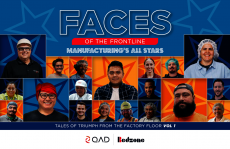Dispatches from IFT
Betatene declared GRAS
Betatene provides a number of mixed carotenoids extracted from Dunaliella salina algae cultivated in saltwater lakes in Australia, including beta-carotene, alpha-carotene, lutein, zeaxanthin and crytoxanthin. It has previously been available for use in dietary supplements in the US.
Now it can also be used in conventional foods and listed as a ‘natural beta-carotene’. While synthetic beta carotenes tend to contain only the trans-isomers, according to the company, Betatene contains both trans- and cis-isomers.
For manufacturers, the ingredient can serve a dual purpose: under coloring regulations it can be a natural colorant, in step with the move away from synthetic colors; it can also be labeled as natueal beta carotene, a vitamin A precursor.
“People are always looking for ways to bump up the nutritional profile,” Sharrann Simmons, senior marketing manager for North America told FoodNavigator-USA.com at the IFT trade show in Anaheim this week, where the new GRAS status was announced.
The GRAS affirmation was conducted by a panel of independent experts, which deemed it safe for use in a broad range of products: baked, egg and dairy goods; cereals; gelatins and puddings; processed fruits and juices; snacks; soups; fats and oils; meal replacements, and medicinal foods.
Tonalin progress
Last August Cognis also announced GRAS for its Tonalin conjugated linoleic acid (CLA) from safflower oil, which is geared towards body fat reduction and maximising lean muscle.
With new product development cycles typically taking 12 to 18 months, Simmons said the first Tonalin-containing food or beverage in the US is expected to be launched to market in early 2010.
She said Tonalin “has the potential to be the next big thing”.
“It resonates with food companies as there is no risk. It is not scary.” This is an important concern for manufacturers given concerns around other ingredients recently, such as Hydroxycut.
Over 25 dietary supplement products already use branded Tonalin. In other places, including Spain, Latin America and Saudi Arabia, it is used in products like milk.
Beauty from within
Both Tonalin and Betatene are included in Cognis’ offering of Beauty from within ingredients – the former because of its body shaping potential and the latter because of the effects of vitamin A on skin and immunity.
At the IFT trade show Cognis also introduced its Plantalin plant extracts to North America. Its Plantalin grape extract and green tea can both help with skin vitality and body shaping, the company says.
Plantalin Rooibos is also included as an ingredient for skin, and Plantalin lemon balm for stress reduction.
“Beauty from within started in Asia and is hitting the US and Latin American in a big way,” Simmons said.
This article has been changed from the original published version as Cognis wished to clarify the information provided and disassociate the GRAS notification from Betatene's role as a color.














